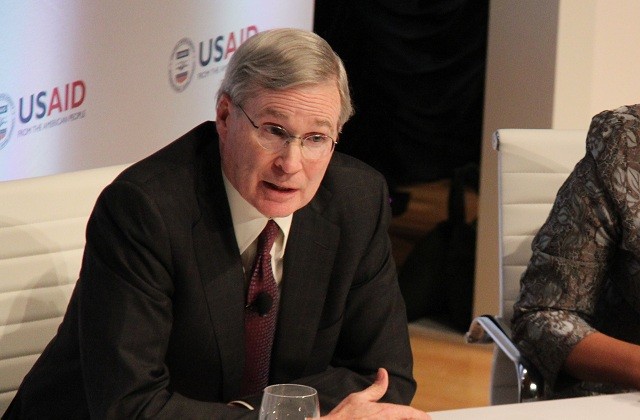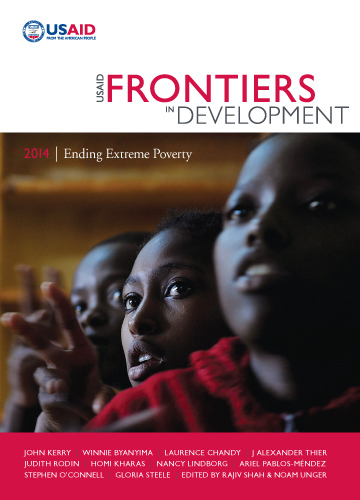- News and Information
- Press Releases
- Congressional Testimony
- Speeches
- Photo Gallery
- The Impact Blog
- Fact Sheets
- Videos
- Events
- Frontiers in Development
- 2014
- Agenda and Video Archive
- Forum Publication
- Innovation Marketplace
- Speakers
- Climate Change: Mary Robinson
- Commitment // Frontiers in Development: Rajiv Shah
- Democracy and Values: Stephen Hadley
- Democracy: Madeleine Albright
- Equality: Winnie Byanyima
- Ethiopia's Progress: Tedros
- Food Security: Strive Masiyiwa
- Leadership: John Kerry
- Pivotal Moment: John A. Kufuor
- Politics in Development: Tony Blair
- Post-2015: John Podesta
- Power and Resilience: Charlotte Petri Gornitzka
- Resilience Dividend: Judith Rodin
- Vision: H.E. Jakaya Kikwete
- Women and Values: Graça Machel
- Women and the Private Sector: Justine Greening
- 2012
- 2014
- White House Summit on Global Development
- Frontiers in Development
- Newsletter
- Success Stories
- Extreme Possibilities
- FrontLines Magazine
- Branding
- Stay Connected

Mr. Hadley joined Secretary Albright and Graça Machel to conclude the 2014 Frontiers in Development Forum in emphasizing the critical role that democracy and rights play in ending extreme poverty. Mr. Hadley stressed the universal desire for democracy and freedom but cautioned that democracies that do not produce stability and growth are vulnerable to conflict and a return to authoritarian rule.
Stephen J. Hadley, Chairman, United States Institute of Peace and U.S. National Security Adviser, 2005-2009
Quotes
Stephen Hadley, @USIP: Democracy has to deliver and produce stability and prosperity or people will become disillusioned. #EndPoverty
— USAID (@USAID) September 19, 2014
Now at Frontiers in Devt: @madeleine Stephen J. Hadley (@USIP) & Graça Machel @G_MachelTrust & @TheElders: WATCH: http://t.co/fm3BK9vCcx
— USAID Policy (@USAIDPolicy) September 19, 2014
Democracy and freedom are not Western values. They reflect the aspirations of the human spirit. But it is not inevitable, and authoritarians have tools and they will fight to maintain their power.
Values are universal. The form they take when they are translated into governed instructions, in individual countries, that’s going to vary. It’s going to vary with the history, culture, traditions, and aspirations of the people.
While regimes in the short run can maintain control through coercion and fear and force, in the long term, legitimacy comes from the consent and support of the people. And that’s the mistake many authoritarians make. They’re playing the short game. They’re not playing the long game.
Media Articles
Biography

Stephen J. Hadley, Chairman, United States Institute of Peace and U.S. National Security Adviser, 2005-2009
Stephen Hadley, chairman of the United States Institute of Peace, completed four years as the assistant to the president for National Security Affairs in 2009. In that capacity he was the principal White House foreign policy adviser to then President George W. Bush, directed the National Security Council staff, and ran the interagency national security policy development and execution process. Prior to that, Mr. Hadley served as the assistant to the President and Deputy National Security Adviser. Mr. Hadley also previously served as Assistant Secretary of Defense for International Security Policy.
Frontiers in Development
Section 2: Politics, Global and Local








Comment
Make a general inquiry or suggest an improvement.